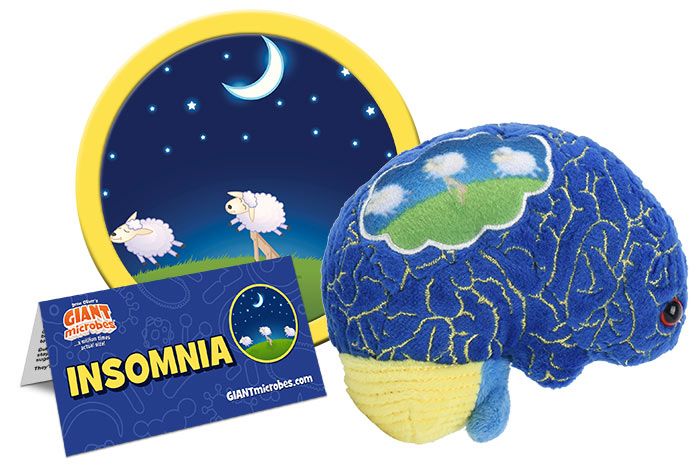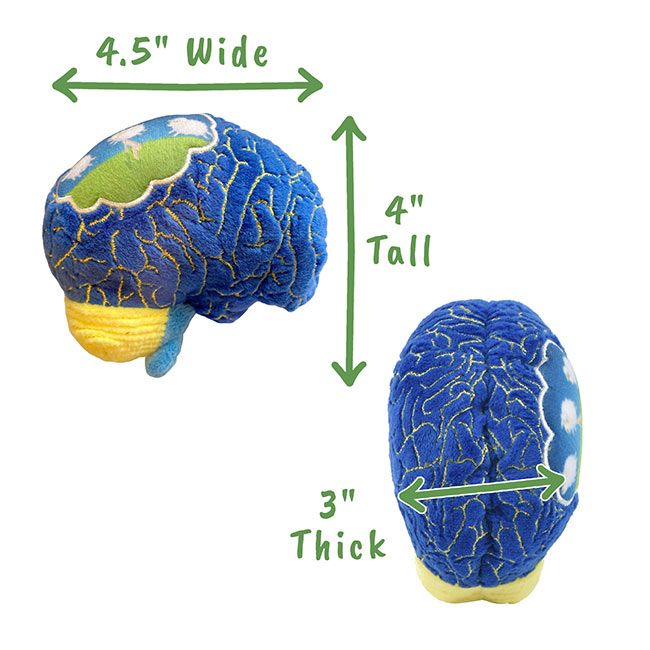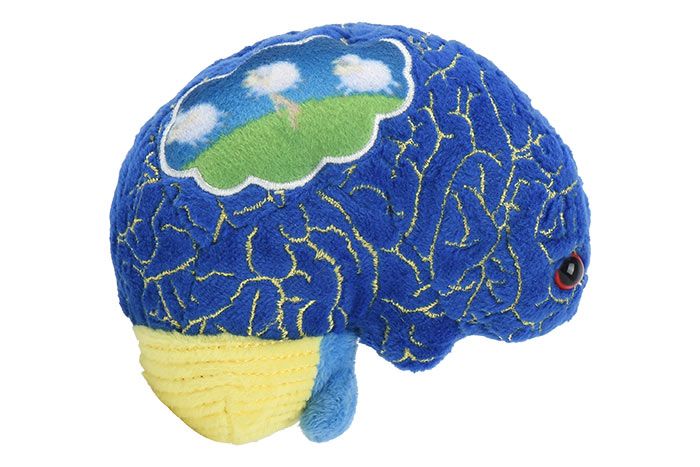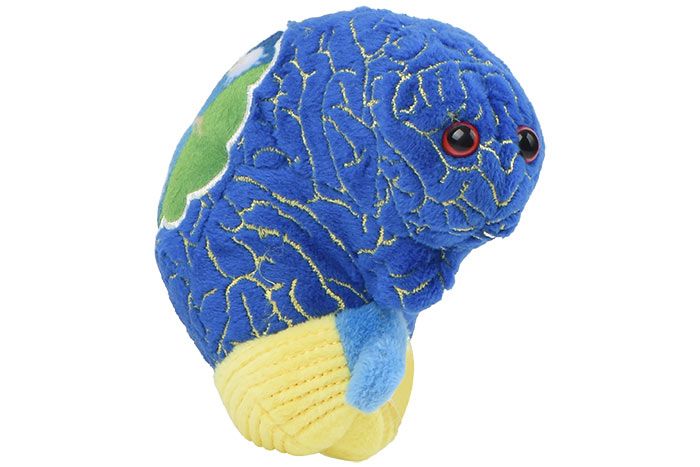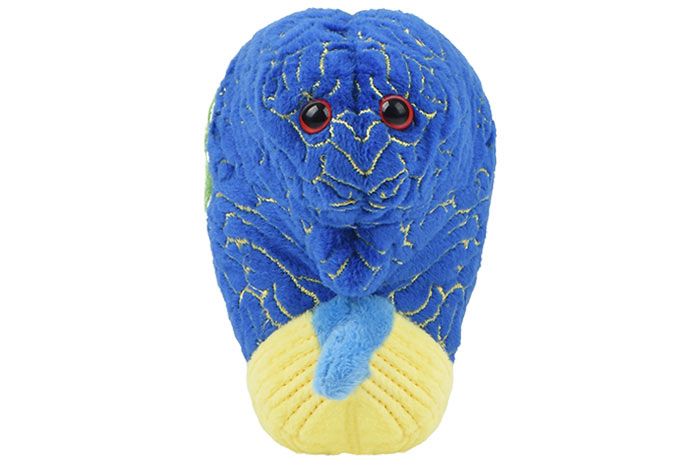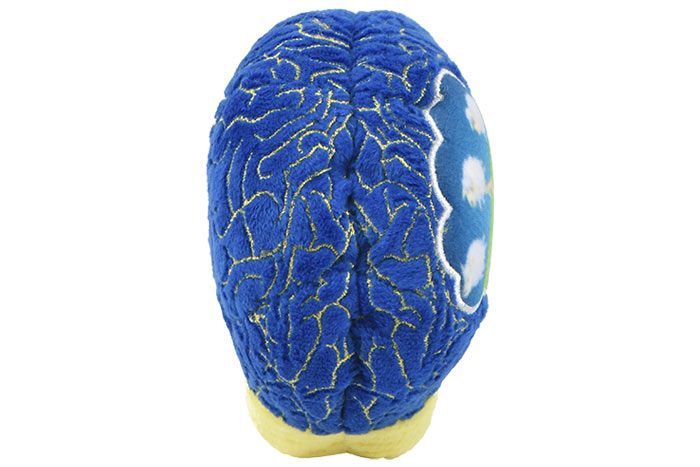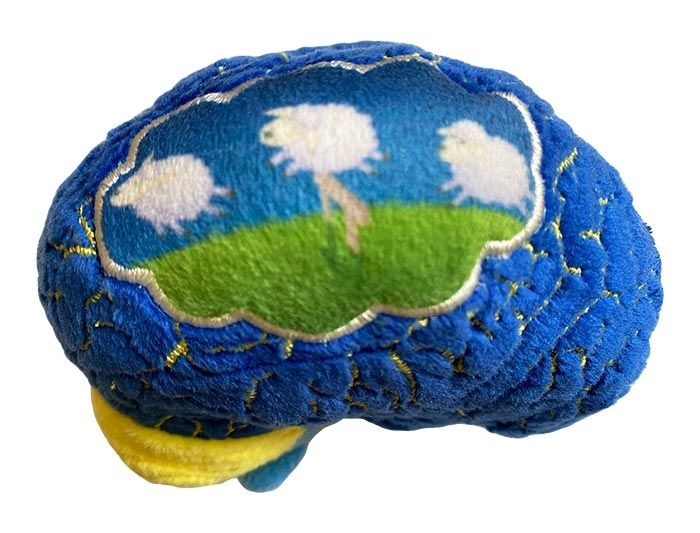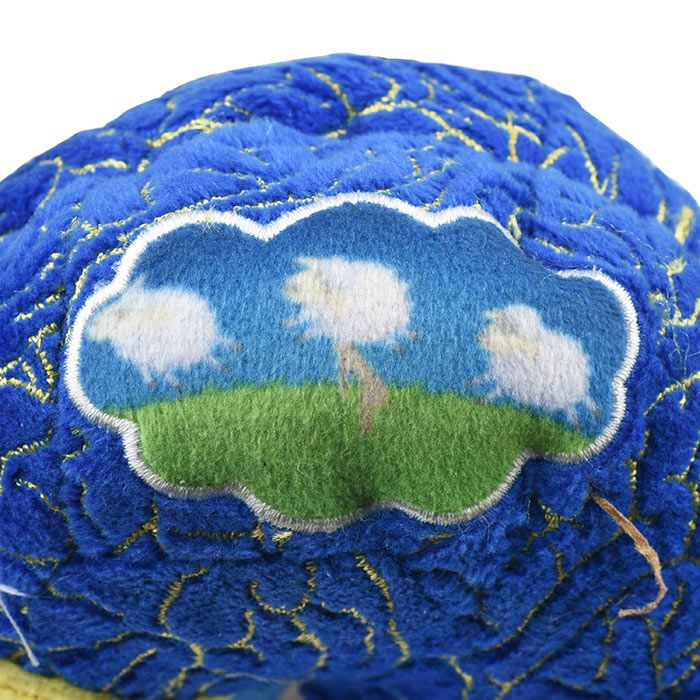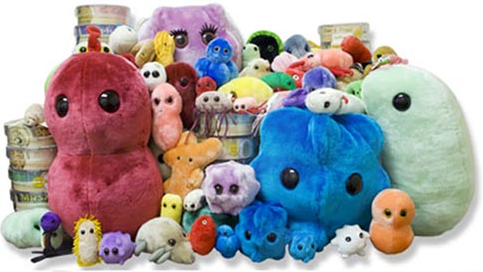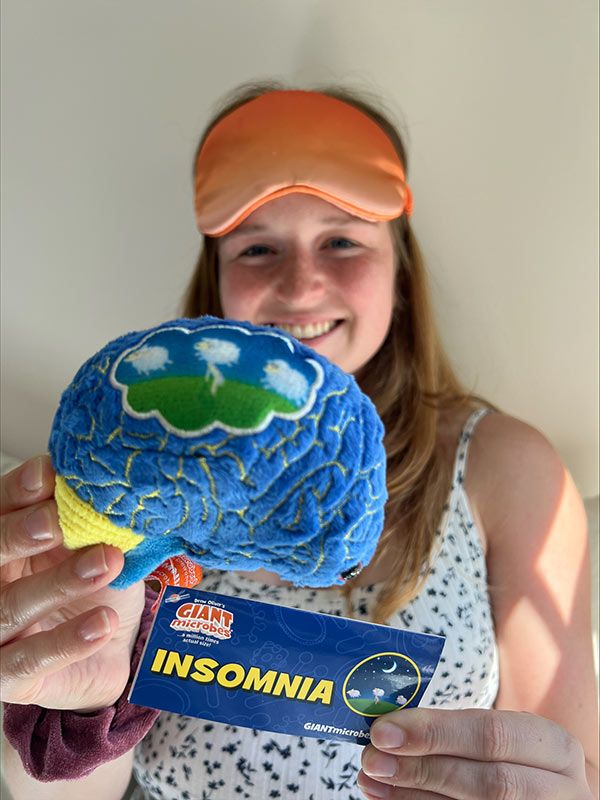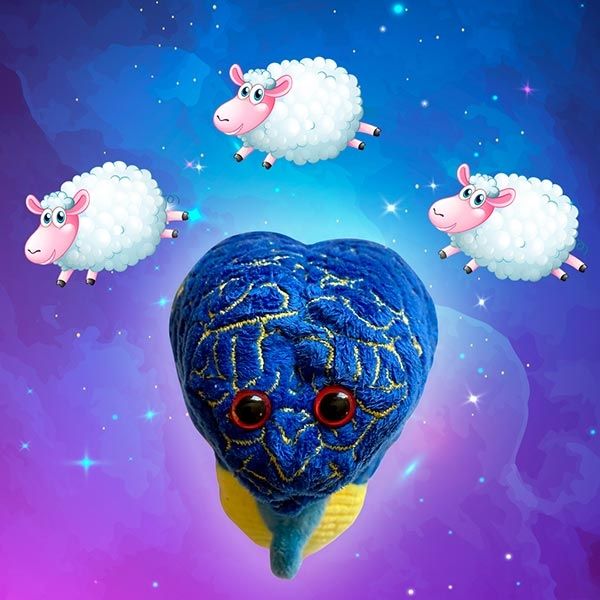Insomnia
This plush representation features an idyllic nighttime scene of counting sheep. For families, teachers, healthcare professionals, public health agencies and friends - this is a unique, memorable and useful tool to help educate, spread awareness, and hopefully get more people talking about this complicated and vitally important mental health topic.
Insomnia brain size is 4.5" x 4" x 3".
Product Details
Additional Information
| Sizes | Giantmicrobes are based on actual microbes, cells, organisms and other critters, only 1,000,000 times actual size! Gigantic (GG) 16-24" XL (XL) 10-15" Original (PD) 5-8" Keychain (KC) 2-4" with clip |
|---|---|
| Materials | Plush from all new materials. Stuffed with polyester fiber fill. Surface washable: sponge with water & soap, air dry. |
| Packaging | Each plush microbe includes a printed card with fun, educational and fascinating facts about the actual microbe or cell. |
| Safety | Every product meets or exceeds U.S. and European standards for safety. For ages 3 and up. |
All about Insomnia
FACTS: Have you ever counted imaginary sheep to help your mind relax and fall asleep at night? For people with insomnia, it’s not that simple. Insomnia is the most common sleep disorder in the world. Approximately 30% of adults have symptoms of insomnia and over 10% may have chronic insomnia, making it a struggle to get through their waking days. The lack of sleep is a growing public health crisis.
Insomnia is characterized by difficulty falling and staying asleep, often leading to sleep deprivation and fatigue. It occurs if you cannot produce sufficient sleep quantity and quality, even when giving yourself enough time to try to sleep. Short-term insomnia that lasts no more than a few weeks is known as acute or adjustment insomnia. Chronic insomnia is when the disorder occurs at least three nights each week for more than three months. Insomnia is further defined as primary or secondary. Primary insomnia takes place regardless of any other health condition or mental illness. Triggers include environmental, medical, physical and psychological factors. Stressful events, such as a coronavirus pandemic, often contribute. Secondary insomnia is caused by an illness that inhibits the ability to sleep.
Many of us fail to obtain the recommended seven to nine hours of sleep each night. Insomnia and sleep loss of any type are hazardous to your health, contributing to weight gain, heart attacks, cancer, diabetes, and inflicting devastating effects on the brain and the body. Thankfully, there are methods for improving sleep and insomnia need not be permanent.
If you suffer from insomnia, cognitive behavioral therapy or medication are more beneficial treatments than counting sheep. Sleeping pills, which sedate your higher brain, are a blunt instrument and not the best first-line treatment. Through cognitive restructuring, relaxation methods, and sleep training techniques, insomniacs can reduce their symptoms and learn to fall and stay asleep at night. Herbal remedies, antihistamines and melatonin supplements can also help. Speak with your healthcare professional and visit the National Sleep Foundation website for excellent information on the world of sleep science and health.


